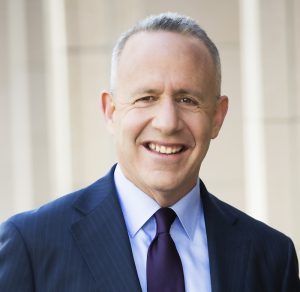Editor’s note: The latest version of “strong mayor” in Sacramento includes other progressive reforms, but is there enough time to rush it on to November ballot?
A coalition of business, community and labor leaders called on July 23 for changing Sacramento’s charter to give the mayor more power over spending and policy.
But this version of “strong mayor” aimed for the November ballot also includes a number of other progressive reforms aimed toward racial equity—changes likely supported by some who would oppose “strong mayor” by itself.
And in advance of the first debate at the City Council on Tuesday, July 28, a long list of community groups and advocates urged that the “strong mayor” and community equity provisions be put into two separate measures for voters to decide.
Under the original plan, the mayor would appoint the city manager, with confirmation by the City Council, and could also fire the city’s chief administrative officer. The mayor would propose a budget. And the mayor could veto line items in the budget and ordinances, subject to an override by a two-thirds vote of the council.
The mayor, however, would no longer have a vote on the council. In addition, a ninth council district would be added and included by a new independent panel drawing new districts after the 2020 Census.
Besides making the mayor the city’s CEO, the proposal would require that the city invest at least $40 million in inclusive economic development, as promised before voters passed the Measure U half-cent sales tax increase in November 2018, and would establish a participatory budgeting process for residents to give more direct input into which projects and programs are funded by the city.
The proposal would also require the city to evaluate the impact of budget actions and ordinances on promoting racial, ethnic and gender equity and on helping small businesses. And it would give the City Council exclusive authority over the city’s housing authority and land-use decisions, and strengthen and make permanent the city’s transparency ordinance and ethics commission.
This plan has the support of Mayor Darrell Steinberg, who easily won reelection to another four years in March and who has been exploring “strong mayor” for several weeks.
While he purposely wasn’t in the July 24 press conference—he says he wanted the community leaders to speak first to send a message—Steinberg said he was a “full partner” in drafting the plan.
And while that plan is much bigger than just strong mayor, it’s not as part of a political strategy to build support, the mayor says. “It is responsive to the issues of our time,” he told me. “It all fits together.”
The coalition leaders say that the changes to the city charter will improve accountability and transparency—arguments that have been made before for “strong mayor.” Amanda Blackwood, president and CEO of the Sac Metro Chamber, said the proposal would help the mayor make city government more efficient. Other speakers said the changes would help the city respond to the growing movement for racial justice.
The leaders also say that the COVID-19 pandemic—and the resulting economic crisis that has hit communities of color the hardest—proves that the mayor needs more freedom to act decisively.
“Of all the lessons we are learning, we have come to clearly understand that we need our city’s leader, the mayor, to be able to respond quickly and effectively set our budget priorities and have the tools to lead us back to economic recovery,” Rachel Rios, executive director of La Familia Counseling Center, said in a statement.
But time is short to get the Mayoral Accountability and Community Equity Act of 2020 on the Nov. 3 ballot. The council would have to pass an official resolution by Aug. 7.
Steinberg said after the council and the public comment on the plan Tuesday, the vote will be on Aug. 4. He said he’s confident the measure will get on the ballot.
“It is responsive to the issues of our time.”

But is it wise to be in such a hurry on such major changes? Is there enough time to give the proposals the proper vetting and public input before placing them before voters?
And even if the measure makes the ballot, how receptive will voters be in the middle of a deadly pandemic?
Cassandra Jennings, president of the Greater Sacramento Urban League, said that coalition leaders are talking to council members, but did not say if they have a majority to put the measure on the ballot.
She also said that the coalition is growing and having conversations. “We are welcoming input now,” she said, and voters will have the chance to speak.
The last time a “strong mayor” measure was on the ballot, in November 2014, 56% of voters rejected Measure L, pushed by then-Mayor Kevin Johnson.
Chet Hewitt, president and CEO of the Sierra Health Foundation, said while the proposal is similar, the time we live in is different. “The change needs to happen. It needs to happen now,” he said.
Despite the broader reforms and the big-name backing Thursday, the measure could still face stern opposition from neighborhood leaders and others who say “strong mayor” would concentrate too much power in one person and weaken the council and influence of neighborhoods. A group called Neighborhoods Against Strong Mayor has already formed, and it includes former Mayor Heather Fargo and incoming City Councilwoman Katie Valenzuela, who has been an outspoken critic of the mayor and council on police reform.

Valenzuela said voters should be insulted that the charter change is being proposed so close to the ballot deadline, saying in a tweet that the timing is “a strong sign of what we could continue to expect under a centralized power structure.” In a series of tweets, she argued that the social equity provisions are window dressing because they aren’t completely binding, and she noted that the measure doesn’t include term limits.
Terry Schanz, chairman of the Democratic Party of Sacramento County, has also registered his opposition, tweeting that the proposed act, “does not hold any current or future mayor accountable and does not ensure community equity. It’s a power grab. It’s a bad idea. It should be defeated. To our City Council, please focus on real problems.”
UPDATE: On Monday, July 27, the community advocates and groups responded by calling for two separate measures. The groups—including the Healthy Sacramento Coalition, the Sacramento chapter of Black Women Organized for Political Action and the Measure U Community Advisory Committee—said while they were pleased to see city leaders consider their proposals, “we are disturbed about the zero sum game of their passage being linked to other provisions in the act; specifically, changing the power, composition and structure of the Mayor and Council governance.”
“Voters should be able to consider if these significant changes to the governance structure have merit separately and independently from measures to increase equity because they are fundamentally different items,” they added.
They also said the community equity provisions must be made binding due to the “city’s track record of sidelining and ignoring community advisors.” They opposed veto power for the mayor and separating the mayor from the council.
Critics also argue that the mayor currently in office should not get the greater powers, only the one elected after any charter change.
But Steinberg says that with this timing, voters would know who would get the additional authority and can decide accordingly. While passing the measure “is going to be tough,” polling shows that it has a good shot, he said.
“I’m not afraid to put this question before voters,” he said.
While Steinberg is leading the city through the coronavirus pandemic as well as the calls for police reform, he has also been frustrated at times by lack of progress on issues such as homelessness. Other big-city mayors in California have more power than does Sacramento’s mayor.
Steinberg told me that while “strong mayor” hasn’t been “a passion play” for him and the city governance system isn’t broken, he has experienced its downsides, especially during the last few months of the pandemic and police reform debate.
Sacramentans, he said, are rightly demanding faster action and he’s being held accountable, but he doesn’t have the tools to make that happen.
The coalition’s announcement came the morning after Black Lives Matter protestors held a die-in outside the home of City Manager Howard Chan to call for his resignation. They say he hasn’t held police officers accountable, though he told The Sacramento Bee that he has disciplined dozens and fired six since becoming interim manager in late 2016. Some activists have also called for Police Chief Daniel Hahn to step aside.
Under the current charter, the city manager hires the police chief, and the mayor and council appoint the city manager.
But Black Lives Matter leader Tanya Faison told CBS13 she opposes “strong mayor.” “The strong mayor is not a good idea. Our mayor already has too much power,” Faison said.
The most recent changes to the city charter were in November 2018 to have the city auditor appointed by the council and in November 2016 to create an independent citizens commission to draw new council districts after the 2020 Census. In March, voters rejected a charter amendment to set aside more money for programs for children and youth.






The manner in which Steinberg used people paid for by the City and a website that has been paid for by the city is a clear violation against the prohibition of using public funds for personal political purposes: Cal GOV § 8314.
Specifically, the law was violated by the use of the sacengage.org domain to promote the qualification of a ballot measure, which a public records act request I did in 2018 confirmed. Mary Lynne Vellinga is a on the City of Sacramento’s payroll, so Steinberg having her write and promote campaign propaganda for the qualification of a ballot is a clear an indisputable use of public funds in despite the law (Cal GOV § 82015).
Here’s the kicker. Steinberg and Vellinga are doing this because they know DA Schubert won’t do a thing about this. She won’t go after killer cops, so it is reasonable to expect her to not go after one of her political allies, especially since they consistently endorse each other in elections.
If you need an example of how this is illegal, then I ask you to look at what happened in San Francisco 9 years. A college official did exactly the samething as Steinberg and Velligna, and he was prosecuted and found guilty. https://www.sfgate.com/crime/article/Ex-SF-City-College-officials-plead-guilty-2299040.php?
While I am one of the people who think Steinberg has done a reasonable if not great job as mayor, I ask you to think back to our previous mayor, Kevin Johnson. Under the KJ regime, this was a totally pay-to-play city in which a sufficiently large behest (bribe) could get you anything you wanted. He had large number of city staff working on his personal projects, and often against the interests of the city. And his alleged child molestation history made Sacramento the laughing stock of the nation, not in a good way. What if we had another KJ, but with strong mayor powers?
It is time for Sacramento to grow up and become a real city. The weak mayor system with its ‘professional city manager’ is designed for small communities that can’t afford good professional politicians to run their cities.
The City Manager position is designed to be the adult in the room when a city can’t support qualified elected people to run the administrative side of a city. This position is hired by the city council to take care of all the administrative activities of the city. All the different department heads, police, fire, public works, parks, etc report to the city manager and then the city manager only reports to the council, NOT the electorate.
Want to get rid of the police chief? We have to get a majority of the council and a weak mayor to persuade the city manager to fire that person. Want to change racial bias in the city administration? Again, we and the council have to work through the city manager to even discipline anyone in that group. No one elected official is able to make those types of changes. The city manager is there to run the city and maintain the status quo and is insulated from the electorate.
Sacramento is completely capable of electing its own mayor/CEO. There are more than enough capable people willing and able to run this city who can pass the muster of being elected by the citizens of this city. At least if WE don’t like what they are doing then WE can vote them out. It’s time for Sacramento to grow up.
There is no need to hold funding for lifting up our investment-deprived neighborhoods hostage to giving the mayor more power. It’s like looking for a white knight. The city council can and should do what equity activists have been asking for all along and especially with measure U funding. The city council would be beholden to business and developer interests under the proposed charter amendments, how would that change anything? Giving ‘one’ budget line item devoted to equity investments? crumbs from the table still. Allies in Sacramento want communities of color and poverty-trapped families to get their fair share of opportunity, public funding and investments. The real question is what is holding the city council members back from doing what they already have the power to do? Maybe we need more changes on city council…let’s let a new generation of council members weigh in on the charter, not the old guard.
We do not need a strong mayor. Many corporations feel it wise for their Board President and their CEO to be different people. Similarly, it’s a good idea for the head of state to be a different person than the head of the government. Human psychology being what it is, many citizens tend to act like the head of state is a mother or father, leading to irrational politics.
While government of by and for the people is ideal, the size of even a town inevitably attenuates meaningful participation and thus a realistic understanding of complexities and trade-offs. Thus, the election of representatives is overly affected by irrational attitudes among voters. The strong mayor proposal would amplify that problem.
Joe Serna had no trouble being a strong mayor without any charter revision, by means of community leadership. We should keep existing checks and balances.
A budget line item floor that’s an absolute number such as $40 million is a bad idea. Such provisions should refer to budget percentages or proportions.
This proposal contains far too many and diverse changes to be ethically presented to voters in one package. It looks like a Trojan horse. There is nothing stopping the council from offering these changes as individual proposals for voters, and it would be far more ethical.
And there is to my knowledge nothing stopping the council from enacting the various “Community Equity and Engagement” and “Ethics and Government Accountability” measures without asking voters or changing the charter.
There are many changes in governance and operations that are more essential to the city’s successful evolution than the actual charter changes proposed.